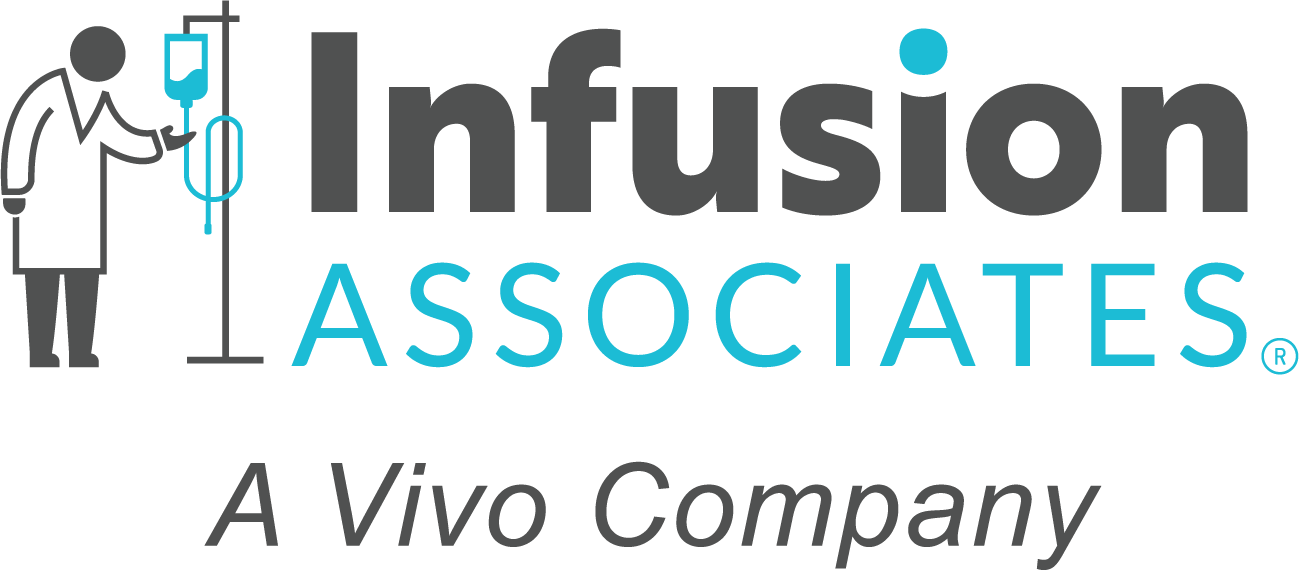When you or a loved one is diagnosed with a rare health condition, you feel like the weight of the entire world is on your shoulders. You struggle to comprehend this new reality, while at the same time undergoing a myriad of emotions — confusion, grief, and acceptance. Such is the case with granulomatosis with polyangiitis. But, what does it all mean? What’s the best form of treatment? Can infusion therapy help? And if so, are there any side effects?
What is granulomatosis with polyangiitis?
Granulomatosis with polyangiitis (GPA) — formerly known as Wegener’s granulomatosis — is a serious blood disorder (a form of vasculitis) that causes inflammation of the vessels in the nose, sinuses, throat, lungs, and kidneys. When this occurs, the cells in these body parts fail to obtain the oxygen they need to function properly. If not treated promptly, the lack of oxygen can result in permanent damage and/or organ failure.
While granulomatosis with polyangiitis can affect patients of any age, it mostly occurs in individuals between the ages of 40 and 65. Its impact will depend on the severity of the condition and the organs that are affected. Living with GPA means regularly visiting your rheumatologist for lab tests and monitoring to prevent complications.
Symptoms of Granulomatosis with Polyangiitis
The symptoms of granulomatosis with polyangiitis may appear gradually or suddenly. The most common ones include:
- Fever
- Shortness of breath
- Coughing
- Blood in phlegm
- Joint pain
- Blood in the urine
- Numbness in the limbs, fingers, and/or toes
- Skin sores
- Hearing problems
- Eye pain or burning
- Eye redness
- Pus drainage from the nose
- Nosebleeds
Infusion Therapy for Granulomatosis With Polyangiitis
While corticosteroids are typically prescribed to treat GPA, such oral medications sometimes fail to provide relief from symptoms. In addition, some patients find it difficult to swallow a pill, making such form of treatment impractical. This is when infusion therapy can provide a viable alternative.
Granulomatosis with Polyangiitis can be treated with a prescription infusion medication called rituximab). In addition to providing a practical solution, Rituximab also has proven to be more effective than certain oral medications when it comes to maintaining GPA in remission. In clinical studies, 95% of patients treated with Rituximab did not have a major relapse for more than two years, compared with 71% of patients taking azathioprine to treat the condition. And, since the medication reaches your bloodstream faster than when taking oral medications, you experience relief at a faster rate. You may also have to continue taking glucocorticoids in combination with Rituximab, if your doctor deems it necessary.
Side Effects of Infusion Therapy for Granulomatosis With Polyangiitis
As with any prescription medications, infusion therapy for granulomatosis with polyangiitis carries the risk of side effects. These may range from mild to severe, and may vary from person to person. The most common ones include:
- Upper respiratory tract infections
- Tiredness
- Body aches
- Nausea
- Fever and chills
- Muscle spasms
- Diarrhea
- Swelling
- Low white and red blood cells
- Redness and/or irritation at the injection site
In rare cases, Rituxan could cause more serious problems. Talking with your doctor about your medical history and other relevant information may help reduce the risk.
What to Expect from Infusion Therapy for Granulomatosis With Polyangiitis
When you first visit one of our Infusion Associates locations, you will immediately notice that we strive to make our treatment centers as welcoming as possible. You will meet with one of our healthcare professionals, who will answer all of your questions and address concerns, as well as discuss in detail everything relating to your treatment — such as dosage amounts, length of each infusion, and the likelihood of side effects.
After this initial meeting, you will be escorted to one of our treatment rooms. If you’d prefer a private room, you can request one when scheduling an appointment. You’ll receive your treatment from the comfort of a reclining chair, and our staff will provide several amenities to ensure your comfort — including blankets, WiFi, and TV. You may also bring your favorite snacks.
If you’re a medical provider and would like to refer a patient to us or want to inquire about the treatments we offer, you can contact us by calling (616) 954-0600 or filling out this form.

